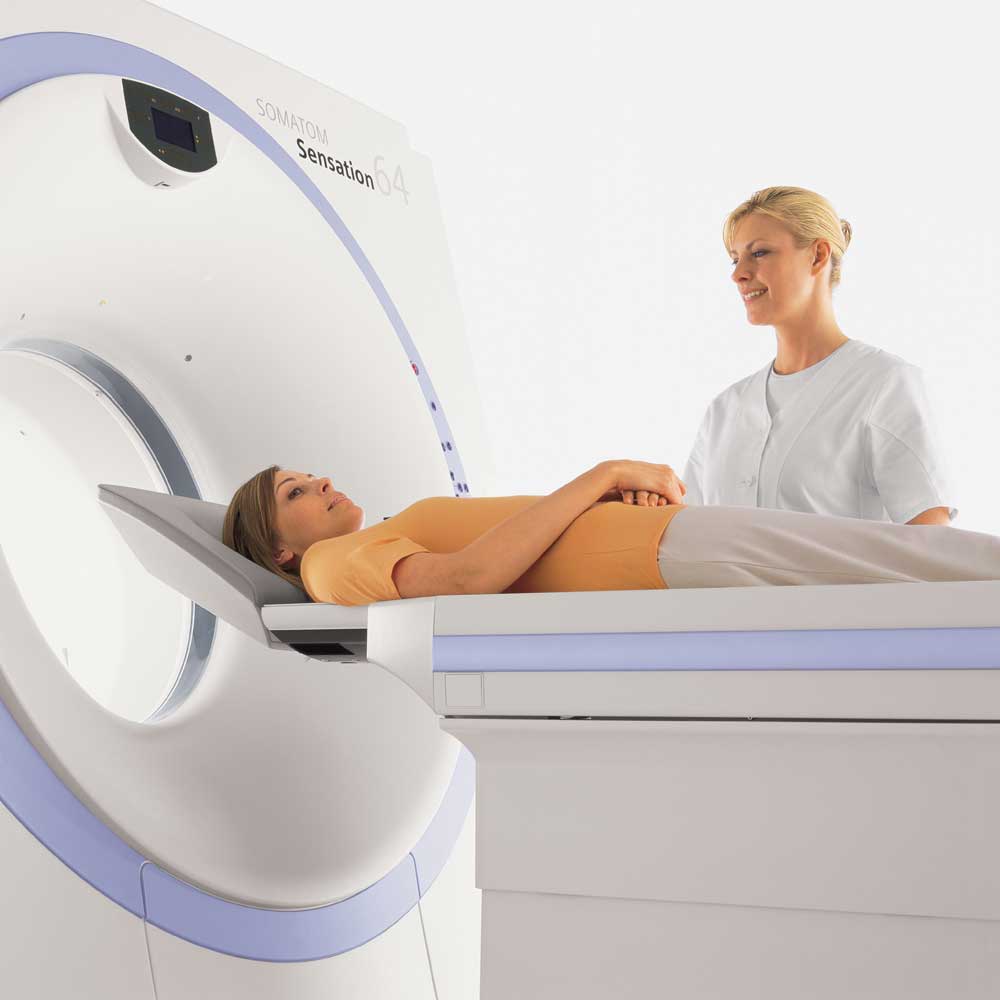
There are many kinds of CT and CTA scans. We have broken them down into categories with separate instructions for each.
CT Scans that do not require preparation
The following CT scans are never done with contrast and require no preparation on the part of the patient:
- CT Temporal Bones / CT IAC (Internal Auditory Canal)/ CT Mandible/CT Facial Bones/ CT Orbits – used to detect fractures, tumors, trauma, infections and other anomalies in the mastoids, middle and inner ear and the jaw bone/face.
- CT Sinuses – most commonly done to check for a deviated septum or sinusitis or polyps.
- CT Ankle/CT Foot/ CT Elbow/ CT Clavicle & Sternoclavicular (S/C) Joints/ CT Hand/ CT Hip/ CT Knee/ CT Sacrum & Coccyx/ CT Wrist – most often done to diagnose fractures, injury to the ligament and dislocations.
CT Scans that may require IV contrast
If you are scheduling one of these studies you should check your prescription or with your referring physician as to whether you will need to have a contrast injection.
The contrast material is iodine based and is used to enhance the detail in blood vessels and soft tissue. It is particularly helpful in isolating pathologies such as cancer.
The following CT scans are either sometimes or always done with IV contrast and will require preparation:
- CT Head – usually done to detect infarction, the source of headaches, seizures, dizziness, tumors, stroke, TIA, hemorrhage and trauma to the bones.
- CT Neck Soft Tissue – done to detect mass, tumor, foreign object, gland lesion, infection or abscess.
- CT Extremities – most often done to diagnose mass, fractures, injury to the ligament and dislocations.
- CT Spine – done to assess injury or abnormalities in the cervical, thoracic or lumbar spine.
- CT Chest – usually performed to detect acute and chronic changes in the lungs, such as fibrosis, emphysema, and tumors.
- CT Urogram – evaluates the kidneys, ureters, and bladder for stones, blockages and cancers or stenosis.
- CT Stone Search – evaluates kidneys, ureters, and bladder for stones. Has mostly replaced the more crude and less accurate Intravenous Pyelogram
- All CTA scans – specialized CTs designed to look at blood vessels in a specific body region. Please see the section on CTAs for more detailed information.
How to Prepare for Your CT/CTA Scan with IV Contrast.
CT Scans that may require IV and/or oral contrast
If you are scheduling one of these studies you should check your prescription or with your referring physician as to whether you will need to have a contrast injection and/or Barium (oral contrast).
The IV contrast material is iodine based and is used to enhance the detail in blood vessels and soft tissue. It is particularly helpful in isolating pathologies such as cancer.
Barium (Barium Sulfate) is the oral contrast used to enhance the digestive tract. It is radiopaque and will appear white on the films.
The following CT scans are either sometimes or always done with IV and/or oral contrast and will require preparation:
- CT Abdomen – most commonly used to diagnose and monitor cancer, abdominal pain, and bowel obstruction.
- CT Pelvis – most commonly used to diagnose and monitor cancer, pelvic pain, and bowel obstruction.
- Any combination of organs in the abdominopelvic cavity.
How to Prepare for Your CT Scan with IV and/or Oral Contrast.
